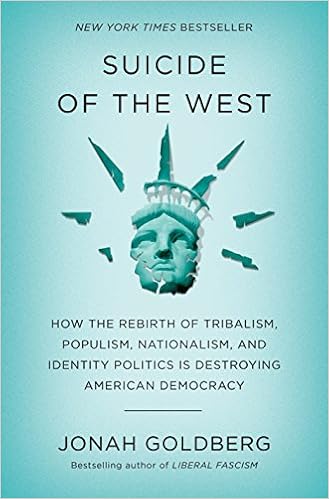
In her Sorbonne University exam results, French philosopher Simone Weil scored better than Simone de Beauvoir or Jean-Paul Sartre. She well understood the varieties of Western fascism and imperialism. So it’s worth paying attention to her remark that Europeans were shocked by Nazi crimes because the Nazis did to them what Europeans did to the people in their colonies. Weil’s remark was hardly news to people in the majority world, but it bears repeating to people in North America and Europe now.
Current US and EU foreign policy embodies fascism in terms of its aspect combining corporate power with State power and policy. The glitzy contemporary version prioritizes monopoly corporate finance and media as a means to achieving what the US and EU elites want, avoiding the mass destruction of war with uncertain global outcomes against obdurate, determined antagonists. That is the underlying meaning of contemporary sanctions and psychological warfare against Russia, China, North Korea, Syria and, in Latin America, against Cuba, Venezuela and Nicaragua.
In Latin America and the Caribbean, this reality is self-evident given the nature of US and EU proxies. The US and the EU support repressive organized-crime regimes in Colombia, Brazil and Argentina and those regimes’ counterparts among the political opposition of Bolivia, Cuba, Nicaragua and Venezuela. A corollary of that support is the inability of these subaltern political blocs to tell the truth or honor agreements, exactly like their overseers in North America and Europe.
Examples abound of this reality. Early in 2018 the Venezuelan opposition was on the point of signing an agreement with President Nicolas Maduro’s government but dropped out at the very last minute on orders from US Secretary of State Rex Tillerson. Similarly, the US authorities unilaterally abandoned the process easing tensions with Cuba after years of negotiations and just recently they intensified sanctions by activating previously unused measures under the notorious Helms-Burton Act.
In Colombia, the latest violation of the increasingly debased peace agreement has been the re-arrest of Jesus Santrich on phoney narcotics charges after his release under the agreement’s key judicial provision, the Special Peace Jurisdiction. That abuse of the agreement follows over 120 murders of demobilized FARC fighters by Colombia’s army and their narco-terror paramilitary allies. Similar gross bad faith characterizes right-wing abuse of judicial practice in Argentina, Brazil and Ecuador and the desperate, unsuccessful maneuvers of the opposition in Bolivia against the presidential candidacy of Evo Morales.
This is the regional context for the political negotiations here in Nicaragua between President Daniel Ortega’s Sandinista government and the US bought-and-paid-for opposition. In contrast to the political opposition in Venezuela, in Nicaragua, the talks are not even with elected politicians. The US controlled opposition representatives have deliberately excluded electorally bankrupt right-wing political parties from the talks The opposition negotiators are almost without exception individuals from organizations dependent one way or another on US financial support.

Leave a Reply
You must be logged in to post a comment.